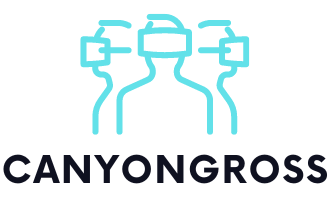Craig Shults is a finance and leadership professional based in Orange County, California. Originally from the scenic Mohawk Valley in Upstate New York, Craig’s journey has been anything but linear. From starting in the insurance industry in the early ’90s to his current role as Controller and CFO at JSL Construction, his path has been marked by resilience, reinvention, and a passion for lifelong learning. He holds multiple degrees, including an AA in General Business and a Paralegal Certificate from Blackstone Career Institute. Outside the office, Craig is a dedicated fitness enthusiast, home chef, and supporter of organizations like the Cystic Fibrosis Foundation and the Make-A-Wish Foundation. His values—honesty, discipline, and empathy—anchor everything he does.
What Does Leadership Mean To You, And Has Your Definition Changed Over Time?
Leadership used to mean being in charge—making the decisions, steering the ship. Over time, I’ve come to see it as something more subtle and powerful. It’s about influence, consistency, and trust. You don’t need a title to lead. Some of the most impactful people I’ve worked with weren’t in formal leadership positions, but they led through example, service, and reliability. Today, I see leadership as a mindset—a daily choice to show up with integrity, stay curious, and bring out the best in others.

You’ve navigated multiple career shifts. What kept you moving forward through uncertainty?
Adaptability. I’ve been in insurance, sales, construction, and more. Each pivot wasn’t just about chasing a paycheck—it was about aligning with where I could grow. The constant has always been my desire to learn and improve. When I didn’t know something, I studied it. When something felt out of reach, I worked harder. And during tough transitions, I always returned to my values. That’s what grounded me and helped me push through when the path wasn’t clear.
Do You Believe Setbacks Are Necessary For Growth?
Absolutely. You learn more from a setback than from a win. When something falls apart—whether it’s a deal, a plan, or a personal goal—you’re forced to ask hard questions: What went wrong? What was missing? What do I need to do differently next time? That reflection is priceless. I’ve faced failures that shook my confidence, but they also taught me resilience, humility, and the importance of staying open to change.
How Do You Approach Pressure, Especially When People Are Looking To You For Answers?
Pressure is part of leadership. When it hits, I pause. I’ve learned the value of taking a moment before reacting. That clarity—often gained through quiet reflection or even a quick meditation session—helps me respond rather than react. I focus on the facts, remove emotion, and start breaking down the challenge into manageable pieces. People don’t expect you to be a superhero—they expect you to be steady, thoughtful, and honest.
What’s A Leadership Trait You Think Is Underrated?
Listening. Everyone talks about vision, strategy, charisma—but real leadership often starts with listening.

If you’re not paying attention to your team, your clients, or even yourself, you’re going to miss critical details. When someone feels heard, they feel valued. That trust creates a foundation for collaboration, loyalty, and innovation.
You Talk A Lot About Self-Discipline. What Does That Look Like In Practice?
Discipline shows up in the small things—getting up early to work out, keeping promises, finishing the hard tasks you’d rather push off. For me, discipline is about doing what needs to be done, even when no one’s watching. It’s about sticking to the process and not chasing short-term rewards at the cost of long-term success. That mindset has helped me grow in every stage of my career.
How Do You Mentor Or Support The People You Work With?
I start by getting to know them—not just what they do, but who they are. I ask questions, listen, and find out what motivates them. From there, it’s about giving them space to grow, while offering honest feedback and guidance when needed. I try to model the habits and mindset I’ve found valuable—accountability, curiosity, and clear communication.
What’s One Mistake That Taught You The Most?
Years ago, I ignored my gut on a business decision. I had the data, but I also had a bad feeling I chose to ignore because the numbers looked good. That choice backfired. It reminded me that leadership is both analytical and intuitive. I now balance logic with instinct and never dismiss either side.
What Keeps You Driven?
Legacy. I want the work I do—whether it’s building systems, leading a team, or mentoring someone—to outlast me. I want to be remembered as someone who showed up, did the work, and helped others succeed. That sense of purpose keeps me going, even when things get tough.
Key Takeaways from Craig Shults
- Leadership starts long before you earn the title—it’s built through action, not position.
- Self-discipline and reflection are essential for navigating challenges and growth.
- Listening, empathy, and humility are often the strongest tools a leader can use.

